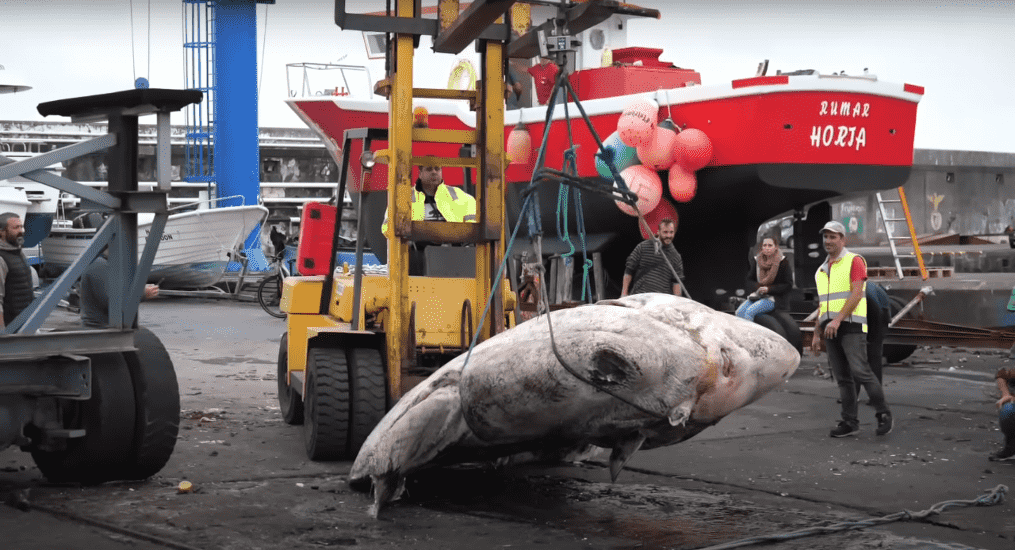Giant sunfish weighing 2,744 kgs (3 tons) found in Portugal
If you have a fear of creatures that live in the deep, then you may not be so pleased to hear that a giant sunfish believed to be the world’s heaviest bony fish has been discovered in the waters of Portugal. The giant sunfish, weighing 2,744 kilograms (3 tons) was found dead in the Azores archipelago.
In a YouTube video posted by conservation research association Atlantic Naturalist, the massive Mola alexandrini or commonly known as the giant sunfish was found floating near Faial Island. According to Dr. Zé Nuno, the sea creature is considered a threatened species in some parts of the world.
Although the team of researchers found the massive fish in December last year, it was only recently that its biometrical and morphological data were published in the Journal of Fish Biology by researchers in the Atlantic Naturalist Association and the Univesity of the Azores University.
According to the paper, prior to their discovery, the titleholder for the heaviest bony fish in world belonged to a female giant sunfish weighing 2,300 kilograms that was found in Kamogawa, Japan in 1996. However, the giant sunfish that was found dead greatly exceeded that of the Kamogawa sunfish.
The specimen was weighed with a crane scale dynamometer and was raised above the ground for a few minutes. Once the exact measurements were stabilized, the fish was found to have a weight of 2,744 kilograms or three tons, which makes it 400 kilograms heavier than the previous record-holder.

The researchers highlighted that large specimens of sunfish can be challenging to study because of scarce mortphological data, or information regarding a living organism's form, and stressed that continued research is needed to understand the rare species' physiology and ecology.
In an interview with CNN, José Nuno Gomes-Pereira, lead author of the paper and postdoctoral researcher at the Atlantic Naturalist Association, said that it saddened his heart "to see the animal in this situation as it must have been a king of open ocean."
He revealed that the "tremendously big" sunfish received a burial in the Natural Park of Faial Island.


